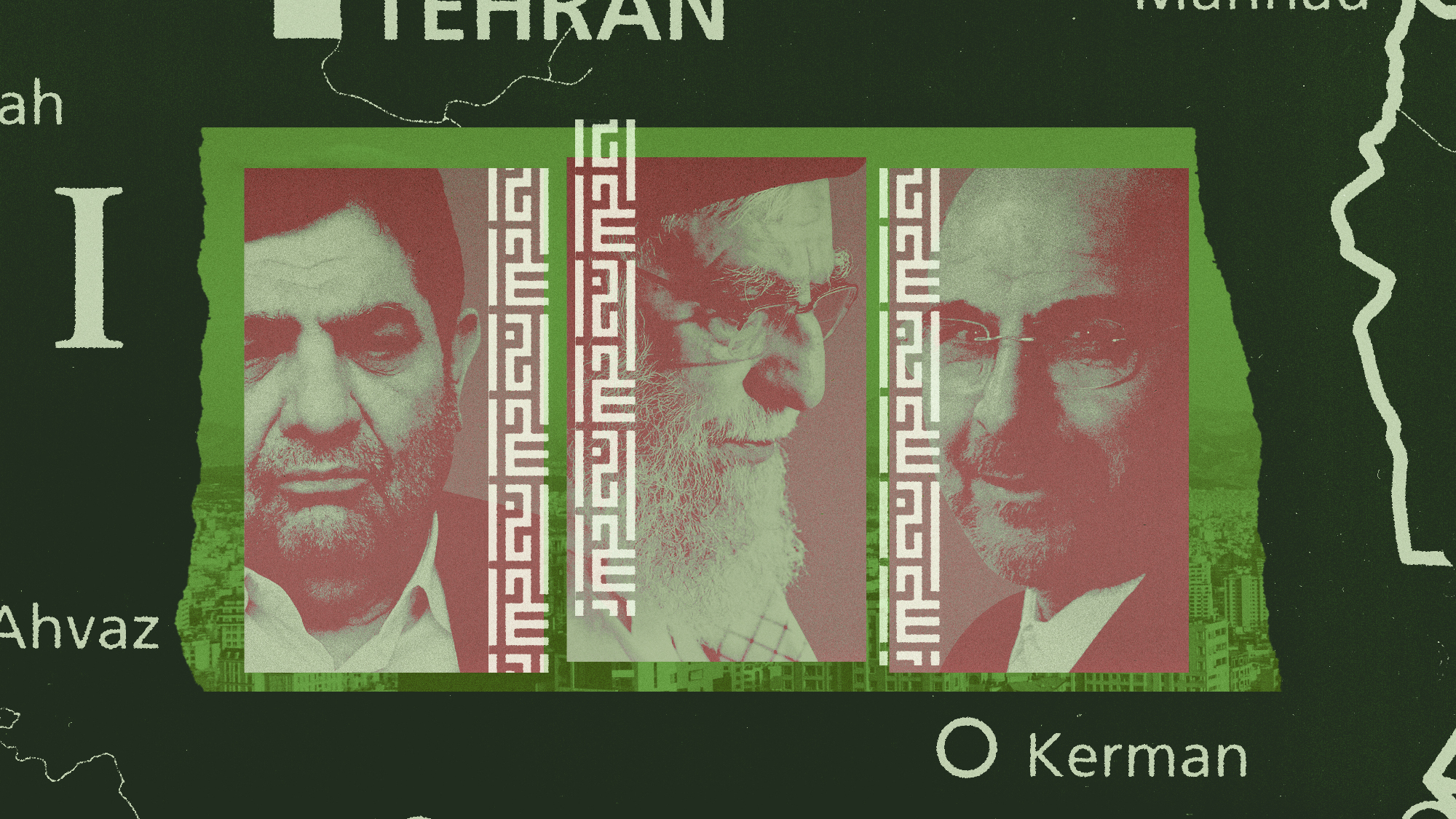What will happen next in Iran?
The sudden death of Iranian president Ebrahim Raisi risks further instability in the crisis-stricken country

A free daily email with the biggest news stories of the day – and the best features from TheWeek.com
You are now subscribed
Your newsletter sign-up was successful
Iranian president Ebrahim Raisi, an ultra-conservative seen as a potential successor to Supreme Leader Ayatollah Ali Khamenei, has been killed in a helicopter crash near Iran's border with Azerbaijan, according to state media.
Raisi "stood close to the pinnacle of power in the Islamic Republic and was widely tipped to rise to its very top", said BBC chief international correspondent Lyse Doucet, but fate has "dealt him a different hand". His sudden death has "upended" speculation over who will eventually replace 85-year-old Khamenei – who holds the true seat of power in the Islamic Republic – and whose reportedly ailing health has long been the focus of "intense interest".
Even before Raisi's death was official, Khamenei sought to reassure the nation, writing on social media site X that "the Iranian people should not worry, there will be no disruption in the country's affairs". Vice-president Mohammad Mokhber has since been confirmed as interim president.
The Week
Escape your echo chamber. Get the facts behind the news, plus analysis from multiple perspectives.

Sign up for The Week's Free Newsletters
From our morning news briefing to a weekly Good News Newsletter, get the best of The Week delivered directly to your inbox.
From our morning news briefing to a weekly Good News Newsletter, get the best of The Week delivered directly to your inbox.
But many will be wondering whether this event will destabilise Iran's fragile political landscape and exacerbate its ongoing crises.
What did the commentators say?
While "tragic fate" of Iran's hard-line president is "not expected to disrupt the direction of Iranian policy or jolt the Islamic Republic in any consequential way", said Doucet, "it will test a system where conservative hardliners now dominate all branches of power, both elected and unelected".
Raisi's opponents will "hail the exit of a former prosecutor accused of a decisive role in the mass execution of political prisoners in the 1980s" and will "hope the end of his rule hastens the end of this regime". For Iran's ruling conservatives the state funeral will not only "be an occasion freighted with emotion; it will also be an opportunity to start sending their signals of continuity", said Doucet.
But with only a short line of possible successors to Khamenei – other than his son, Mojtaba Khamenei – Raisi's death could throw the country's political future into "turmoil", said Jack Detsch, Foreign Policy's national security reporter. The Islamic Revolutionary Guard Corps (IRGC), the largest branch of the Iranian armed forces which "controls major swaths of the country's economy", could use the upheaval to "strengthen its hand".
A free daily email with the biggest news stories of the day – and the best features from TheWeek.com
Raisi's death could also leave a "small opening" for resurgent protest movements, said Behnam Ben Taleblu, a senior fellow focused on Iran at the Foundation for Defense of Democracies (FDD), speaking to the magazine.
Although repression prevents them from acting too openly, "these movements are not dead," said Taleblu. "The story of the Iranian protest movement is always a matter of when and not if."
In terms of geopolitical impact, the crash comes amid "an array of political, social and economic crises", including international pressure over its disputed nuclear programme and its deepening military ties with Russia, said Reuters. It also comes amidst a years-long "shadow war" between Iran and Israel, which has recently escalated with the two countries exchanging drone and missile fire last month.
"Israel's analysis so far appears to be that the unexpected demise of the two top regime figures [the foreign minister was also killed] is unlikely to significantly alter its long-running cold war with Tehran", said Bethan McKernan in The Guardian, with the Islamic Republic's foreign, defence and nuclear policies "ultimately the purview" of Khamenei.
However, the internal power struggles likely to be created by this "sudden vacuum" may "draw Tehran's attention away from the war in Gaza", and thus from the Iran-allied groups in Syria, Iraq and Yemen who have all attacked Israel with drones or rockets since the war broke out last year.
What next?
Khamenei has announced five days of mourning. Under Iran's constitution, a presidential election must take place within 50 days.
The "more important succession, though, lies a bit further in the future", said The Economist. With Raisi's death, Khamenei's second son, Mojtaba, appears to have a "clear path to the top job" as Iran's Supreme Leader. But he would "rely on the IRGC to weather any backlash – and that, in turn, could strengthen the IRGC's role within the regime".
"For years, hardliners had tried to ensure a smooth succession," installing Raisi as president and a crop of conservatives in parliament. Now they will be forced to find a new president at short notice, "and some politicians will wonder if other politicians orchestrated the helicopter crash to advance their interests". For the regime, there will be "nervous days ahead".
Sorcha Bradley is a writer at The Week and a regular on “The Week Unwrapped” podcast. She worked at The Week magazine for a year and a half before taking up her current role with the digital team, where she mostly covers UK current affairs and politics. Before joining The Week, Sorcha worked at slow-news start-up Tortoise Media. She has also written for Sky News, The Sunday Times, the London Evening Standard and Grazia magazine, among other publications. She has a master’s in newspaper journalism from City, University of London, where she specialised in political journalism.